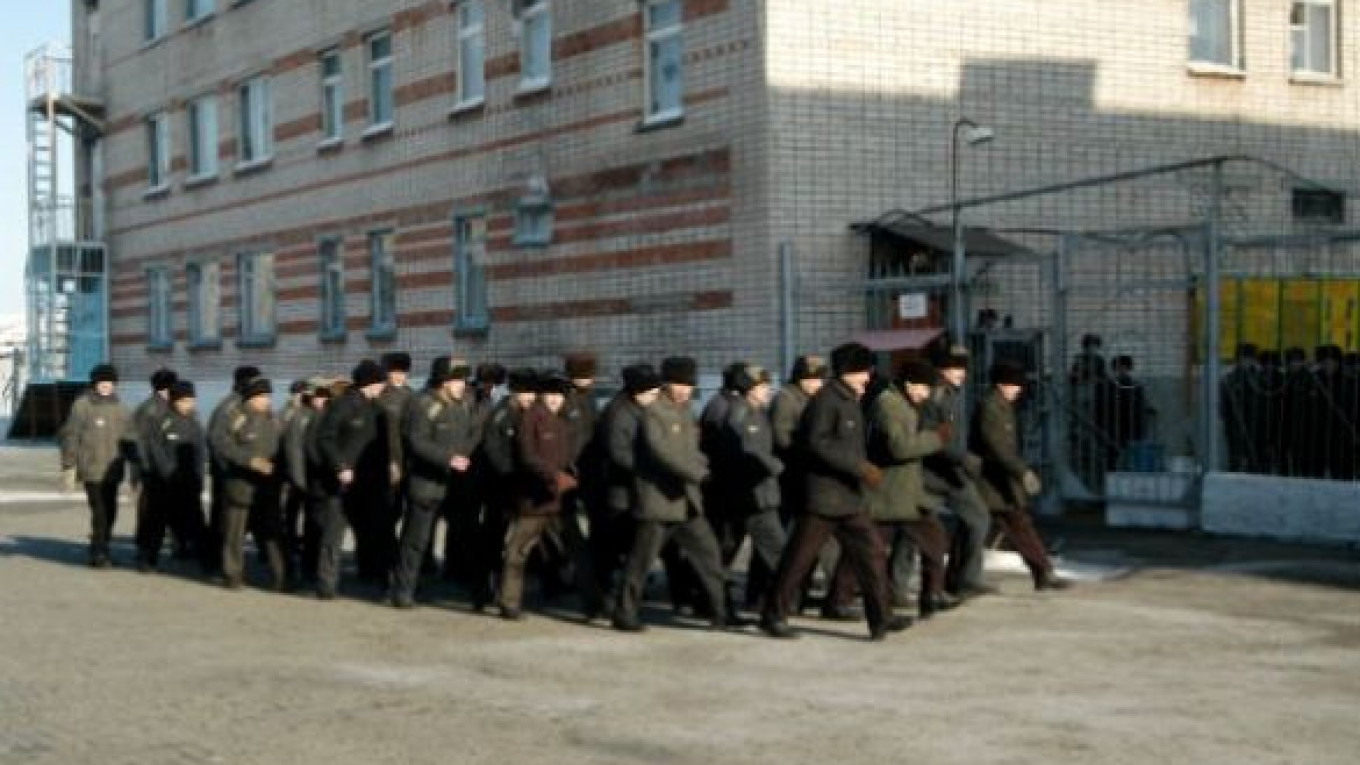Twelve prison officials have been punished over a riot in a Chelyabinsk region prison colony last month, the Federal Prison Service said Friday.
The disciplinary action comes a day after investigators searched the homes of prison staff at Kopeisk's Penal Colony No. 6, where hundreds of inmates revolted for three days over inhumane treatment and extortion in late November.
The prison service did not elaborate on the punishments imposed on the officials or their rank within the prison system.
Instead, it accused news outlets of misinterpreting the Kopeisk riot in a statement carried by national news agencies on Friday.
"What has been presented by the media as a peaceful act of insubordination is in fact a gross violation of prison regulations," the statement said. "Similar protests were planned in several other prison colonies but were prevented from taking place."
According to local rights activists, the riot started when inmates went on hunger strike and intentionally stood out in the freezing cold for more than 24 hours.
In footage broadcast on state-run TV, a group of prisoners later climbed a prison watch tower, hanging a banner reading "People, help!"
In the aftermath of the riot, more than 350 official complaints were filed with local investigators, including over 250 claims of physical violence and torture, 161 of extortion, 28 of labor violations and 20 of substandard medical aid.
The Chelyabinsk region's top prosecutor subsequently called for prison staff to be punished for "gross violations" and federal investigators opened a criminal case on abuse-of-office charges.
On Friday, the Federal Prison Service also denied reports that prison staff provoked the riot by mistreating an inmate in solitary confinement in the maximum-security penitentiary.
"As regards the prisoner who was in a disciplinary cell, the prosecutor's office has run eight checks into his placement there and ruled that the actions of prison staff were lawful," the statement said, quoting Gennady Kornienko, the country's prison chief.
The riot, which was extensively covered by national and international media, called into question government attempts to effect far-reaching prison reforms following the death of anti-corruption lawyer Sergei Magnitsky in a Moscow prison in 2009.
Senior prison officials admitted at a meeting of the presidential human rights council held in Chelyabinsk on Dec. 4 that prison reforms were "a failure," saying "they were written without asking the opinion of the public, investigators and prosecutors."
The same day, President Vladimir Putin fired Alexei Velichko, deputy head of the prison service, although a copy of the decree on the Kremlin website did not explicitly link the sacking with the Kopeisk events.
According to the Federal Prison Service, the country's prison system contains 639,600 prisoners, down 7.6 percent since last year.
Related articles:
A Message from The Moscow Times:
Dear readers,
We are facing unprecedented challenges. Russia's Prosecutor General's Office has designated The Moscow Times as an "undesirable" organization, criminalizing our work and putting our staff at risk of prosecution. This follows our earlier unjust labeling as a "foreign agent."
These actions are direct attempts to silence independent journalism in Russia. The authorities claim our work "discredits the decisions of the Russian leadership." We see things differently: we strive to provide accurate, unbiased reporting on Russia.
We, the journalists of The Moscow Times, refuse to be silenced. But to continue our work, we need your help.
Your support, no matter how small, makes a world of difference. If you can, please support us monthly starting from just $2. It's quick to set up, and every contribution makes a significant impact.
By supporting The Moscow Times, you're defending open, independent journalism in the face of repression. Thank you for standing with us.
Remind me later.






